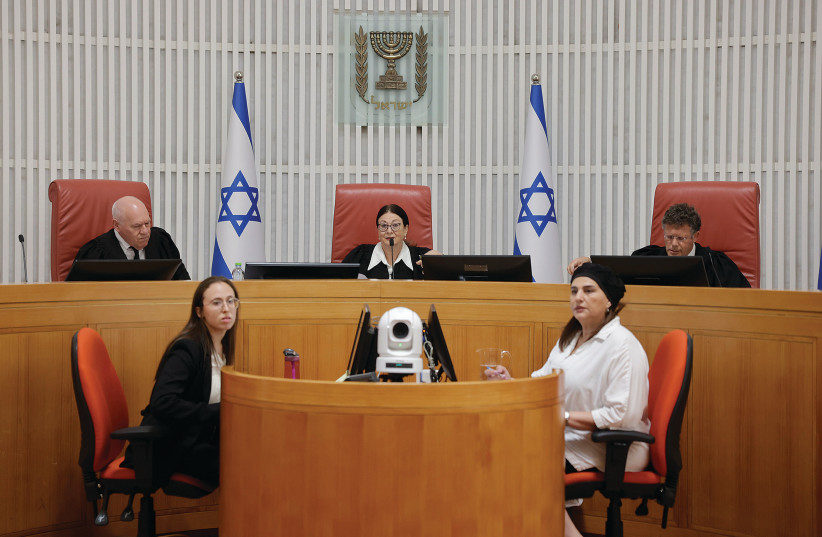September is a veritable minefield for the Supreme Court of Justice. There are three explosive hearings connected to the judicial reform lined up, and any ruling by the court could set off the coalition or opposition. The court could be hoping for a judicial reform deal to defuse the situation.
A second incapacitation law hearing is set for September 28. The law established that the prime minister can only be declared unfit for service for health reasons, but critics argue that it is a personal law to improve Prime Minister Benjamin Netanyahu’s legal position concerning violations of his corruption trial conflict of interest agreement.
The Attorney-General has opined that Netanyahu violated the agreement by involving himself, and rumors spread that she was seeking to oust him using an incapacitation clause.
While petitioners have called for the law to be struck down, the court seems to be circumventing the volatile issue of canceling basic law amendments, by instead seeking to remove its personal character – by delaying its application.
While the opposition may be satisfied with this compromise, the decision would still anger coalition members who believe that Netanyahu could be ousted under the old incapacitation mechanism.

The Judicial Selection Committee hearing is set for September 19. Justice Minister Yariv Levin refused to convene the committee until the panel for appointing judges was reformed, leading to Yesh Atid and NGOs petition for its immediate assembly. While the decision is less legally contentious, it is still politically hazardous. Both the opposition and the coalition are pushing for appointment systems that they think will advantage judges in their own camp.
The reasonableness standard law, which restricted judicial review of government and ministerial administrative decisions, is the first and so far only judicial reform bill to pass into law. Petitioners are calling on the court to strike the legislation, which is a basic law amendment. The High Court has assembled a historic 15 justice bench to preside over the hearing, but has never before struck down a basic law amendment. It is contested whether the judiciary has the power to do so, and the government could choose to not recognize a decision to do so. A constitutional crisis could unfold, in which the two branches challenge each other’s legitimacy and decisions, undermining the stability of the government system.
No matter what the court decides, it will face intense protests and potentially damage to the institution itself through renewed reform legislation. Dealings outside the court could remove the decision from the hands of the court.
An outline for a compromise was leaked to Israeli media on Monday night, and while it was immediately attacked by hardliners from both the anti-reform and pro-reform camps. On Tuesday night Netanyahu called for a renewed push for negotiations without preconditions – thought the response has been lukewarm. Yet talking of talks is still progress, and could develop into full negotiations.
According to N12, Likud is seeking, as part of a reform deal, a simple majority Knesset override for High Court rulings against basic law amendments. Any court ruling would mean little to the Right, and a constitutional crisis could be avoided since there is widely accepted resolution mechanism. The opposition would be angry with the coalition, not with the court.
Refusing to convene on the Judicial selection committee
The government is refusing to convene the judicial selection committee until a reform is passed on the system. The outline proposed some guidelines for a new system, and if a piece of legislation is soon introduced, it may placate fears about assembling the panel. The process of reviewing judge candidates is a lengthy one, and reformist fears about a wave of left-wing judges may not be realized before a system they approve of is implemented.
The leaked outline also called to soften the reasonableness law through re-legislation. This is one of the options before the bench in response to the petitions, and if the coalition resolves to take this path, the court could delay the hearing or even reject the petition. The High Court is a forum of last resort, and the justices may argue that the deal is an alternative recourse that needs to be explored.
There are no time limits for High Court deliberations on rulings. They could be extended for as long as it takes for a deal to materialize and remove the impact of the decision or the negate its need all together. The court could take weeks or even months to tip-toe through the minefield while it hopes for a negotiation team to sweep it.
